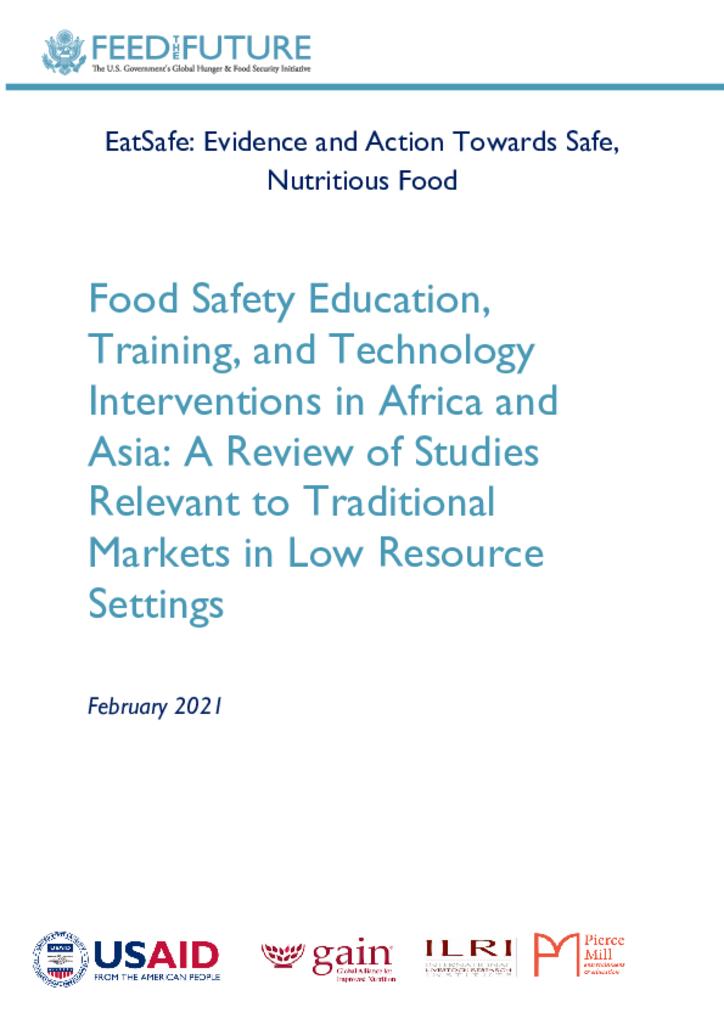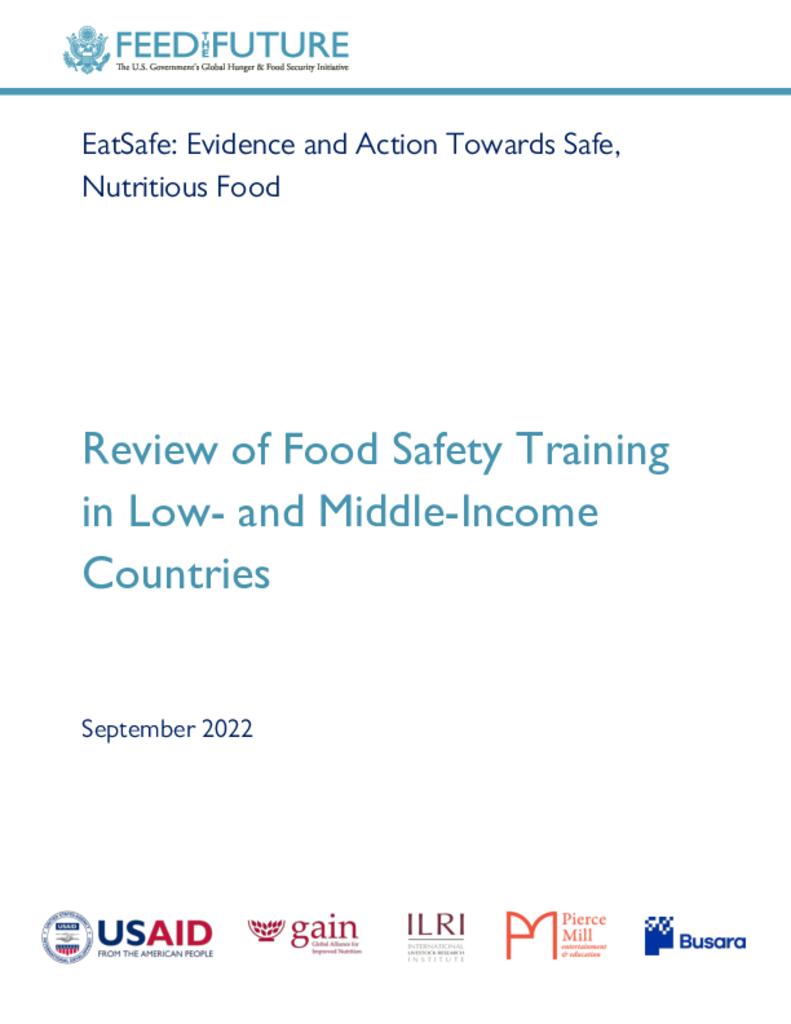Interventions seeking to improve food safety often integrate educational techniques with training methodologies and applied technologies. EatSafe conducted two activities, a literature review followed by a synthesis review of key studies, to better understand the nuances of food safety interventions.
EatSafe first reviewed recent food safety interventions, with a focus on traditional market settings and consumers who buy food there. Across Asian countries, Data from studies implemented in Asian countries were extracted from 19 articles, while 23 articles focusing on African countries were examined. Results indicated that most studies identified general hygiene practices that are relevant to many food commodities. Many studies involved community members compared to food vendors. Interventions involving group trainings, using a variety of media, group interaction, and types of trainers, were most often reported across countries and audience categories.
Second, EatSafe's synthesis review examined the characteristics of successful food safety training interventions identified in the prior activity. In this report, EatSafe assessed 16 food safety training approaches using a qualitative evaluation framework, or a list of behavioral theory-based research questions on training approach, audience, context, and training curricula, to examine key factors for effective food safety training programmes.
The first programme report described on this page was adapted into a peer reviewed paper, published in Zoonoses and Public Health. |

